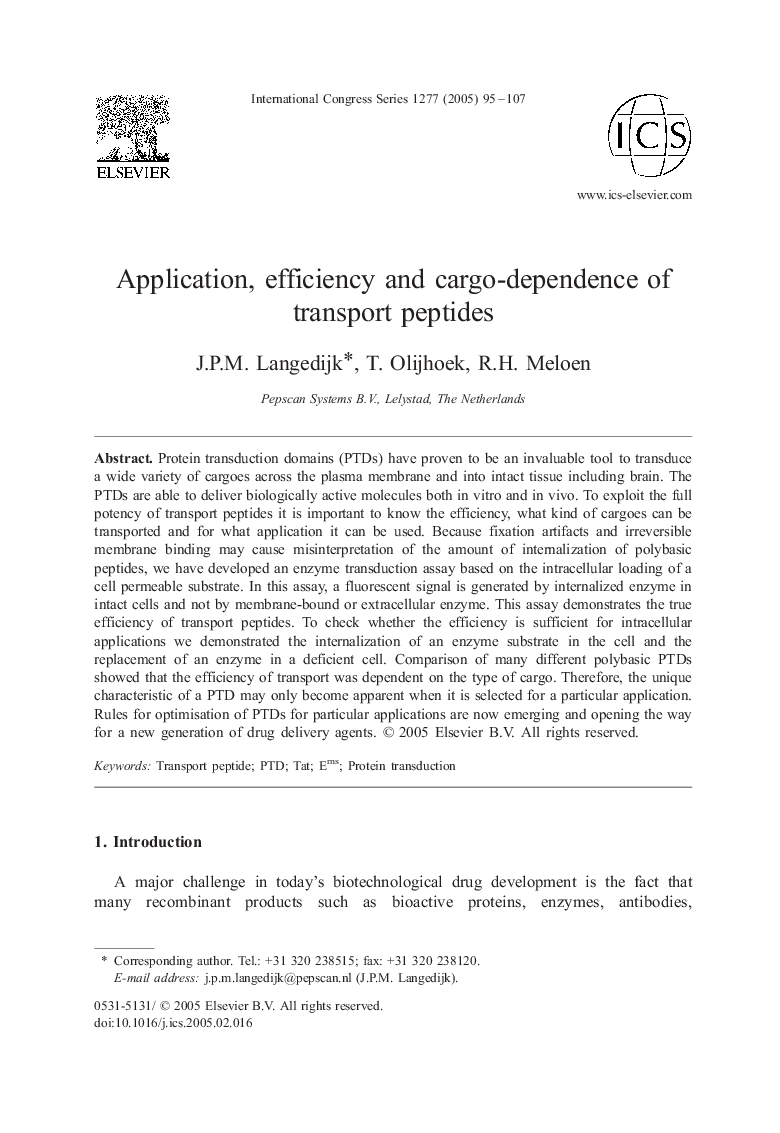| Article ID | Journal | Published Year | Pages | File Type |
|---|---|---|---|---|
| 9022179 | International Congress Series | 2005 | 13 Pages |
Abstract
Protein transduction domains (PTDs) have proven to be an invaluable tool to transduce a wide variety of cargoes across the plasma membrane and into intact tissue including brain. The PTDs are able to deliver biologically active molecules both in vitro and in vivo. To exploit the full potency of transport peptides it is important to know the efficiency, what kind of cargoes can be transported and for what application it can be used. Because fixation artifacts and irreversible membrane binding may cause misinterpretation of the amount of internalization of polybasic peptides, we have developed an enzyme transduction assay based on the intracellular loading of a cell permeable substrate. In this assay, a fluorescent signal is generated by internalized enzyme in intact cells and not by membrane-bound or extracellular enzyme. This assay demonstrates the true efficiency of transport peptides. To check whether the efficiency is sufficient for intracellular applications we demonstrated the internalization of an enzyme substrate in the cell and the replacement of an enzyme in a deficient cell. Comparison of many different polybasic PTDs showed that the efficiency of transport was dependent on the type of cargo. Therefore, the unique characteristic of a PTD may only become apparent when it is selected for a particular application. Rules for optimisation of PTDs for particular applications are now emerging and opening the way for a new generation of drug delivery agents.
Keywords
Related Topics
Life Sciences
Biochemistry, Genetics and Molecular Biology
Molecular Biology
Authors
J.P.M. Langedijk, T. Olijhoek, R.H. Meloen,
